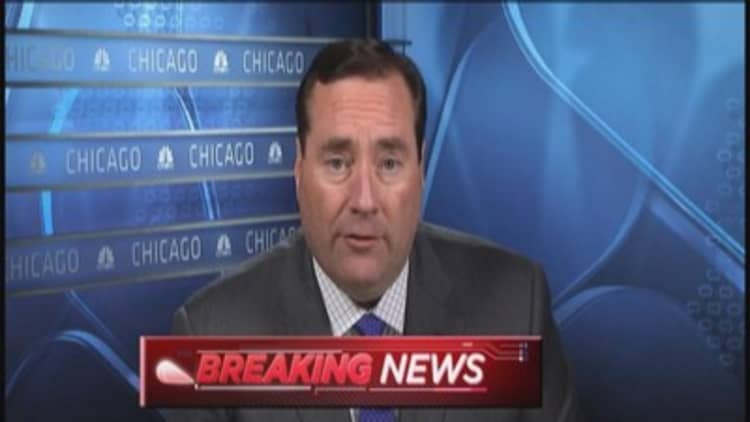Takata, the Japanese auto safety equipment maker whose potentially defective air bags have been linked to four deaths in the United States, is likely to warn of a bigger full-year loss when it reports quarterly results later on Thursday.
The company's air bags, used by many leading car makers, are the focus of a U.S. regulatory probe and have prompted the recall of some 17 million cars worldwide in recent years.
Takata, which has 22 percent of the global market for air bag inflators - the explosive device that allows the air bag to inflate in a fraction of a second in the event of a crash - has already set aside 75 billion yen ($655 million), around enough to cover the recall of up to 9 million cars. Two people familiar with the matter have said the company may book another 2-3 billion yen charge for the July-September quarter to help cover additional recalls.
Read More
Osaka-based Daicel, a local rival that makes air bag inflators, also announces July-September earnings on Thursday. Its shares have jumped by as much as a quarter in the past two weeks - valuing the company at over $4.1 billion - on hopes it can win automakers' business away from Takata.
As uncertainty remains over potential future recalls and the likely cost of a growing number of legal cases against Takata and some automakers, including Honda Motor, its biggest customer for inflators, shares in Takata have almost halved in value since January.
By most financial metrics, Takata is the worst performer among more than 100 Japanese auto parts makers.

Apart from its steep share price decline, which has chopped its market value back to a little over $1.1 billion, Takata's forward price/earnings ratio of more than 75 is the highest in the industrial sector in Japan, according to Thomson Reuters SmartEstimates - a sign of investor unease. The company's operating margins also rank bottom in the sector, as does its return on equity, at minus 25 percent in the April-June quarter.
Takata, which has a strong cash position for now, is likely to revise its full-year forecast to a 26 billion net loss - from a previous forecast for a 24 billion yen loss, the reported this week.
Ejector seats and shotguns
Daicel, meanwhile, is expected to increase its full-year operating profit to more than 46 billion yen, according to Thomson Reuters I/B/E/S, nearly 13 percent higher than the company's own forecast. Second-quarter profit is forecast at 11.2 billion yen.
Read MoreMore air bag recalls could test automakers' Takata ties
Daicel, formed from a 1919 merger of eight regional celluloid manufacturers, doesn't disclose how much its inflators business contributes to overall sales, but its pyrotechnic devices division - which includes air bag inflators, parts for fighter jet ejector seats, missile components and shotgun cartridges - is expected to make up close to a fifth of total revenue this year. Daicel's main businesses are in synthetic resins, organic chemicals and plastics. CEO Misao Fudaba has been with the company since graduating from university 35 years ago.
By 2020, Takata's share of the global air bag-inflator market will have halved, according to Valient Market Research, while Daicel will have jumped up the industry rankings with a 24 share of the market, up from 16 percent now.

